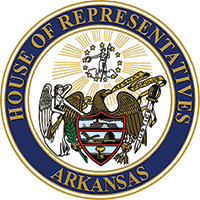
From July 2020 to July 2021, there were 1,619 reports of newborns born in Arkansas with an illegal substance present in their system. This is a 20% increase from the year before.
The House and Senate Committees for Aging, Children and Youth, Legislative and Military Affairs reviewed the number of Garrett’s law reports early this week.
In 2005, the Arkansas General Assembly passed a law expanding the definition of child neglect to include causing a newborn to be born with an illegal substance present in the newborn’s system as a result of the pregnant mother knowingly using an illegal substance before the birth.
This act became known as Garrett’s Law, named after a child born under such circumstances.
The number of Garrett’s Law reports accepted for investigation has consistently increased since the law’s inception 16 years ago.
On average, reports have increased by 10% per year from 2006 onward. The number of reports received annually has nearly quadrupled since 2006.
Marijuana was the most commonly mentioned illegal substance in the reports. For the state fiscal year 2021, 75% cited marijuana use, either separately or in combination with other drugs, followed by amphetamines/methamphetamines at 26% and then opiates at 10%. Benzodiazepines were cited in 5% of the reports, while cocaine was cited in 3%.
Of all of the cases reported, 10% of the infants required neonatal intensive care,11% suffered from respiratory distress, and 4% exhibited drug-related withdrawal symptoms.
The Division of Children and Family Services reviews each report made, and in some cases, the child is removed from the parent’s custody.
The increase of Garrett’s Law reports is startling and heartbreaking to review, but we want Arkansas families to know help is available.
Arkansas Connect is a partnership between the state and UAMS. The initiative provides care to anyone dealing with substance use disorders or mental health concerns. The phone numbers are 501-526-3563 or 800-482-9921. The lines are open 24 hours a day, seven days a week.
DHS recommends that pregnant women struggling with an addiction not wait until after the baby is born to seek help. You can talk with your doctor, therapist, or seek assistance through maternal/prenatal addiction programs, like the one at UAMS. You can find more information HERE.
